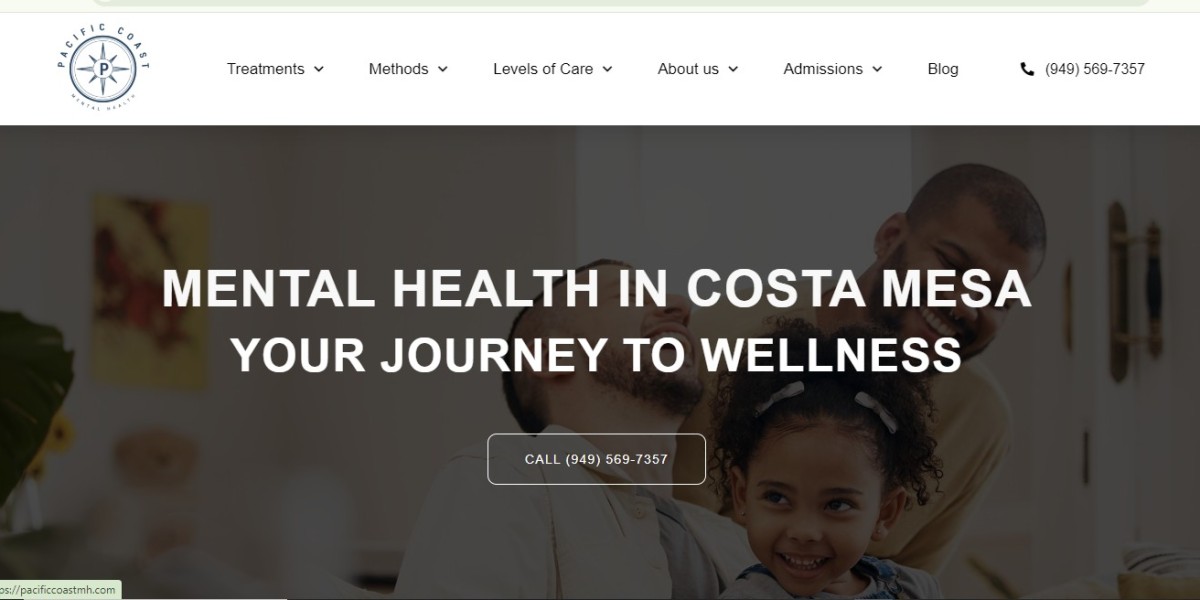Anxiety is a prevalent mental health condition that affects millions of people worldwide. It can manifest in various forms, including generalized anxiety disorder, panic disorder, social anxiety, and specific phobias. At Pacific Coast Mental Health, we are dedicated to providing comprehensive and effective anxiety treatment to help individuals regain control over their lives and achieve mental wellness. This article explores the various anxiety treatment options available at our facility on the Pacific Coast.
Understanding Anxiety
Anxiety is a natural response to stress, but when it becomes excessive and persistent, it can interfere with daily activities and overall quality of life. Common symptoms of anxiety include:
- Persistent worry or fear
- Restlessness or feeling on edge
- Fatigue
- Difficulty concentrating
- Irritability
- Muscle tension
- Sleep disturbances
- Panic attacks
Treatment Options for Anxiety at Pacific Coast Mental Health
At Pacific Coast Mental Health, we offer a range of evidence-based treatments tailored to meet the unique needs of each individual. Our holistic approach ensures that we address all aspects of a person's well-being, promoting lasting recovery and mental wellness.
- Psychotherapy
- Cognitive Behavioral Therapy (CBT): CBT is a widely used and effective treatment for anxiety. It helps individuals identify and change negative thought patterns and behaviors that contribute to anxiety. Through CBT, patients learn coping strategies to manage their anxiety symptoms and improve their quality of life.
- Exposure Therapy: This therapy is particularly effective for phobias and social anxiety disorder. It involves gradual and controlled exposure to the feared object or situation, helping individuals desensitize and reduce their anxiety over time.
- Mindfulness-Based Stress Reduction (MBSR): MBSR combines mindfulness meditation and yoga to help individuals develop greater awareness of their thoughts and feelings. This practice can reduce stress and improve emotional regulation.
- Medication Management
- Antidepressants: Selective serotonin reuptake inhibitors (SSRIs) and serotonin and norepinephrine reuptake inhibitors (SNRIs) are commonly prescribed to manage anxiety symptoms. These medications help balance chemicals in the brain that affect mood and anxiety.
- Benzodiazepines: These medications provide quick relief for acute anxiety symptoms. However, they are typically prescribed for short-term use due to the risk of dependence.
- Beta-Blockers: These medications can help manage physical symptoms of anxiety, such as rapid heartbeat and trembling, particularly in social anxiety situations.
- Lifestyle and Holistic Approaches
- Exercise and Nutrition: Regular physical activity and a balanced diet can significantly impact mental health. Exercise releases endorphins, which are natural mood lifters, while proper nutrition supports overall brain function.
- Relaxation Techniques: Practices such as deep breathing exercises, progressive muscle relaxation, and visualization can help reduce stress and promote relaxation.
- Support Groups: Connecting with others who understand the challenges of anxiety can provide valuable support and encouragement. Group therapy sessions offer a safe space to share experiences and learn from one another.
- Innovative Treatments
- Transcranial Magnetic Stimulation (TMS): TMS is a non-invasive procedure that uses magnetic fields to stimulate specific areas of the brain involved in mood regulation. It has shown promise in treating anxiety disorders, particularly when traditional treatments have not been effective.
- Biofeedback: This technique involves using electronic sensors to monitor physiological functions such as heart rate and muscle tension. By becoming aware of these responses, individuals can learn to control them and reduce anxiety symptoms.
Why Choose Pacific Coast Mental Health?
At Pacific Coast Mental Health, we are committed to providing high-quality, personalized care for anxiety disorders. Our team of experienced mental health professionals works collaboratively to develop tailored treatment plans that address the unique needs of each individual. Here’s why you should choose us:
- Comprehensive Assessments: We conduct thorough evaluations to understand the full scope of each client’s condition and develop the most effective treatment plan.
- Evidence-Based Treatments: Our therapies are grounded in the latest research and best practices in mental health care.
- Holistic Approach: We consider all aspects of a person’s life, including physical health, lifestyle, and personal goals, to provide holistic care.
- Ongoing Support: We offer continuous support and follow-up to ensure that our clients achieve and maintain their mental wellness goals.
Conclusion!!
Anxiety is a challenging condition, but with the right treatment and support, recovery is possible. At Pacific Coast Mental Health, we are dedicated to helping individuals overcome anxiety and lead fulfilling lives. If you or someone you know is struggling with anxiety, don’t hesitate to reach out to us. Together, we can navigate the path to recovery and well-being.
If you Love this article or want to read more Just Hit the Like button Pacific Coast Mental Health


